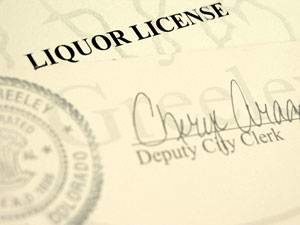One of the key questions we are often asked by startup restaurant businesses is what type of business entity the founders should form – a corporation or a limited liability company. There are multiple factors that go into the corporation vs. LLC decision, of course — taxation, management, liability protection, investment structure, etc. But I want to discuss another one that is quite important here in Maryland, but that is all too often overlooked: liquor licensing.
In Maryland, new liquor licenses are awarded to individuals – not companies. That is to say, individuals actually apply for, and are granted, the license on behalf of the company that will operate the business (i.e. the business entity named on the restaurant lease). Of course, not just any individual can apply on behalf of the company; he or she must have some relationship to it. This is where the choice of corporation or LLC comes into play.
If the applicants are applying on behalf of a corporation, the individuals must be officers of the corporation. And if the corporation has three or fewer officers, all the officers must be on the application. And because all Maryland liquor license applications are subject to hearing, that means all the officers must appear for the hearing.
You can imagine what a burden this is for larger, particularly out-of-town corporations that own restaurants here in Maryland. Either they are required to have certain of their key officers apply for the license and appear for the hearing, or they will have to add officers solely for the purpose of the application. For certain large companies, that may not even be an option. But even smaller businesses may not want all their officers to have to appear on the application or at the hearing. But once they sign their lease in the name of a corporation, those are the applicants’ only real choices.
In contrast, for an application made on behalf of an LLC, the only similar requirement is that the applicants be what are called “authorized persons” of the LLC. That means they do not have to be officers, members, managers, or have any other formal role or ownership in the business. They just need to be authorized by the LLC to apply for the license. And it is sufficient to only have one authorized person do so, provided that person otherwise meets the requirements to hold a Maryland liquor license – including the all important residency requirement.
The residency requirement (i.e. that a resident of Maryland or the local county appear on the application) actually raises other important issues about choice of entity, but those will have to wait for another blog post. Suffice it to say for now that when you are considering what sort of entity to form for your restaurant business (and which entity will sign your restaurant lease), you should consider not only the standard implications, but also multiple restaurant-specific factors. And how it affects your ability to obtain a liquor license should be at the top.

